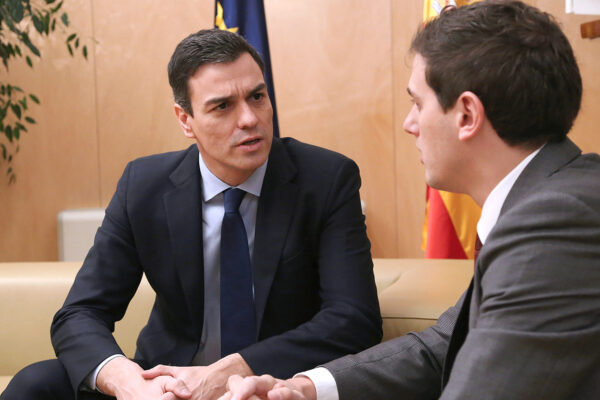
Spain’s liberal Citizens have ruled out a pact with outgoing prime minister Pedro Sánchez while the Catalan branch of his Socialist Party has said it will not support a deal with right-wing parties — making a centrist coalition after the election in April impossible.
Priorities
As I wrote here before snap elections were announced, the only alternative to either a continuation of Sánchez’ coalition with far-left and regionalist parties or a right-wing coalition that includes the far-right Vox is a deal between the Citizens and the Socialists.
The two tried to form a government in 2016 but couldn’t command a majority at the time.
Back then, the Citizens’ priority was removing the corruption-ridden People’s Party from power.
Now it is so singularly focused on opposing the Catalan independence movement that it is willing to cooperate with a party (Vox) that on nearly every other issue — climate, Europe, labor, women’s rights — holds opposite views from its own.
Conflicting demands
José Manuel Villegas, the Citizens’ secretary general, told the press on Monday that Sánchez would be forced into opposition for attempting “to reach an agreement with the separatists.”
Sánchez convinced Catalan pro-independence parties to support his bid to become prime minister in June. In return, he offered to talk about transferring more money and power to the region. But he balked at the separatists’ demand for a legal independence referendum. When the separatists withdrew their support last week, he called early elections.
The secretary of the Catalan Socialist Party, Salvador Illa Roca, maintains that they will not support any agreement with the right, calling for “dialogue with Catalonia within the law” instead.
The most likely outcome, according to recent surveys, is a government of the Citizens and People’s Party, supported by Vox, that could suspend Catalan autonomy.
